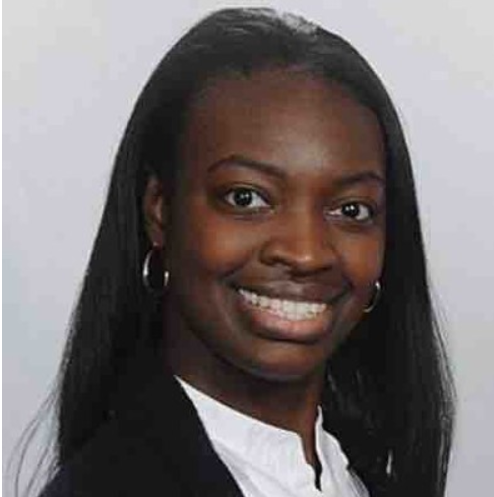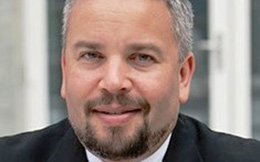A new report sheds light on the perspectives of U.S. accounting and finance professionals around issues of diversity and inclusion
Roughly half of U.S. accounting and finance professionals view the profession as equitable or inclusive; yet, among those professionals from underrepresented communities based on a gender, race or ethnicity, and LGBTQ+ identity, only one-third share this view.
That’s a key takeaway from a new ground-breaking report, Diversifying U.S. Accounting Talent: A Critical Imperative to Achieve Transformational Outcomes, from the California Society of CPAs (CalCPA) and the Institute of Management Accountants (IMA). This research was based on survey responses from more than 3,000 current and former U.S. accounting and finance professionals and 60 interviews across the country.
While gender diversity has improved with women now comprising 62% of the accounting and finance industry workforce, there is still a long way to go for equitable representation at the most senior levels of the profession. Indeed, for every 10 of the profession’s most senior leaders, nine are white, eight are male, and few are openly identify as LGBTQ.
Based on the diversity gap at the top of the profession, the report concluded that the profession has “a bigger equity and inclusion problem and a diversity problem,” according to two key contributors and authors to the report, Loreal Jiles, director of research at IMA, and Brad Monterio, chief learning officer at CalCPA.
According to the report, people of diverse demographic backgrounds say they are not advancing in the profession because of inequity and exclusion. More specifically, professionals who identify as female, non-white, and LGBTQ+ reported that they don’t have equitable access to sponsors or mentors — with 66%, 70%, and 50% of respondents saying that, respectively. Moreover, 73%, 50%, and 60%, of these groups respectively, reported that firm leaders demonstrate unfair prejudice or bias toward this group that negatively affects their promotion.

The research also analyzed three areas — data, policy, and culture — that are key to solving the diversity gap at the most senior levels.
Data
Every accounting employer is at different points along its diversity, equity & inclusion (DEI) journey, but data is critical to establishing a status baseline and to figure out where investments need to be made. Many senior leaders at accounting and finance employers believe that their organization is progressing nicely on its DEI journey; however, unless they are analyzing representation at every level (individual contributor, manager, senior manager, director, partner, etc.) from a gender, race and ethnicity, and LGBTQ+ perspective, the diversity gap between senior leaders and those within the ranks will continue to exist.
At a minimum, leaders should ensure that a pool of diverse candidates is used for promotion and hiring. In all cases, data should be leveraged to determine where representational deficiencies are present.
Policy
After looking at the data, real policy solutions then can be used to address the diversity gap.
The report revealed that there is a false belief that the lack of representation at most senior levels is solely caused by meritocracy. This further perpetuates the view that any action taken to address a lack of representation is a handout to underrepresented individuals. This assumption is wrong because there are systemic issues of bias at play within organizational talent systems that impact performance evaluations, promotions, compensation, recruiting and retention. “The lack of recognition or awareness of diversified people as talented, along with presumptions about their capabilities, results in diverse professionals either remaining stuck at lower- or mid-level positions or leaving the profession altogether,” said one survey respondent.
In fact, data on the advance of professional women underscore that when targeted action is taken, progression is expedited. “Women have made the greatest improvement in diversity among senior roles in the profession, as the result of an abundance of targeted DE&I initiatives across the profession and concerted cultural changes,” the report stated.

To find policy solutions that work, the accounting and finance profession may need to look outside of the industry to find ways to advance representation while maintaining meritocracy. For example, the Diversity Lab certifies law firms and corporate legal departments that use the Mansfield rule, which requires candidate pools for hiring and promotion be at least 30% diverse. Indeed, 76% of certified legal employers said their equity partner promotion pool was more diverse, 92% reported an increase in formal diversity discussions regarding succession and governance roles, and 57% elected or appointed a higher percentage of diverse lawyers into office managing partner roles.
Culture
The report also indicates that accounting employers need to make monumental increases in investments in culture or face lower retention of quality diverse professionals. In fact, the report showed that at least 30% of respondents have left organizations because of a lack of inclusion; and 18% of diverse accounting and finance professionals surveyed reported inequitable and exclusive experiences that they believed were rooted in bias and that contributed to their decision to leave the profession.
Further, employers should also prioritize allyship aimed at improving a culture of belonging and inclusion, the report noted. For example, Weil & Gotshal’s Upstander Action Guide, outlines how internal peers can “listen up, show up, talk up, and speak up” to address situations of bias and empower bystanders to support inclusion within their day-to-day actions.
The collaboration on research and action between IMA and CalCPA is only the beginning, and both Jiles and Monterio said they are committed to this work for the long term. “The return on investment to DEI makes not only good business and human sense, but it’s the right thing to do,” stated Monterio. “It’s not a political issue, it’s a human one.”







